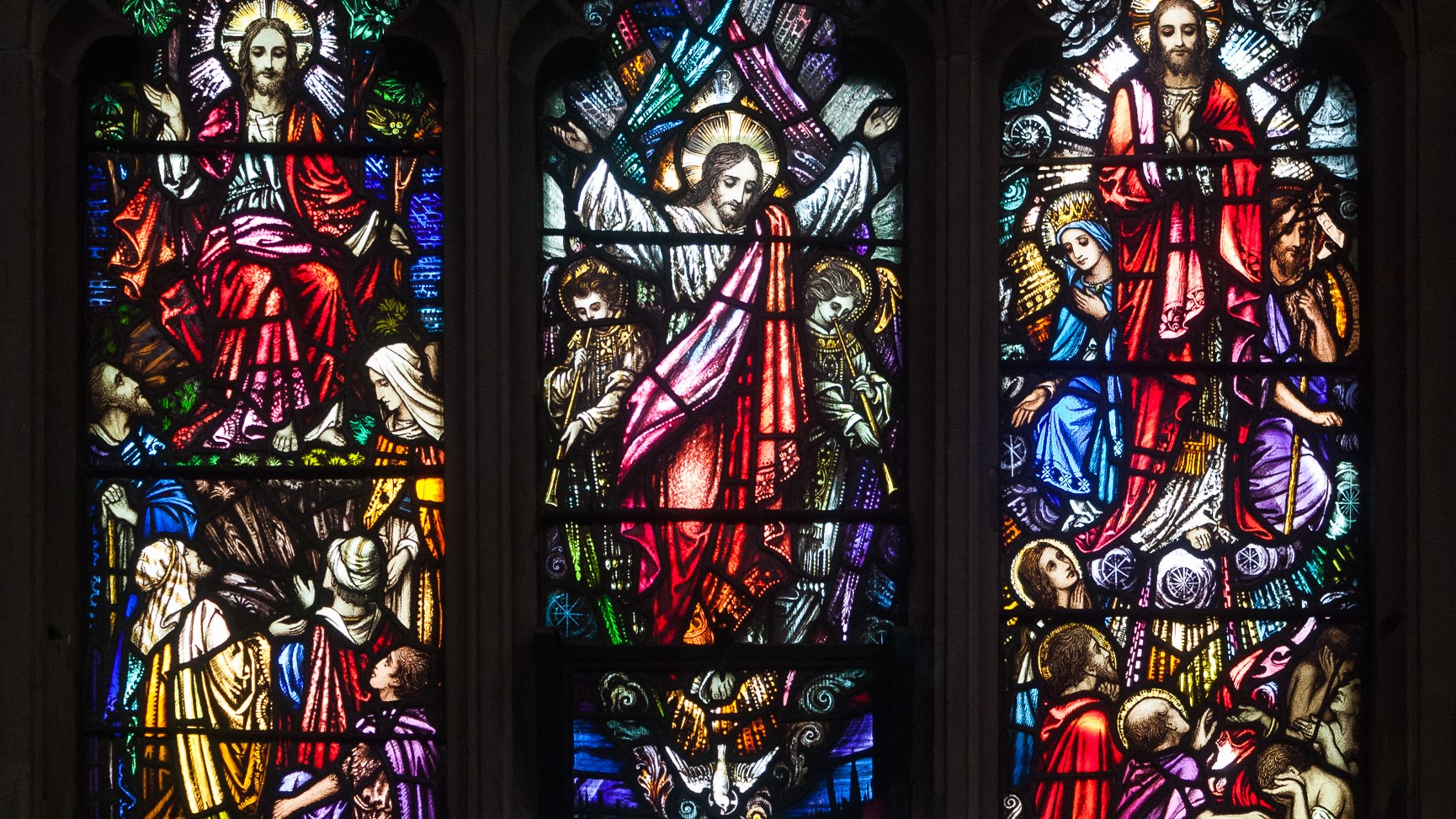
John 17:1-5
Narrative Lectionary
1 After JesusA had spoken these words, he looked upB to heavenC and said, “Father, the hourD has come; glorifyE your Son so that the Son may glorify you,
2 since you have given him authorityF over all people,G to give eternalH lifeI to all whom you have given him.
3 And this is eternal life, that they may knowJ you, the only trueK God,L and Jesus ChristM whom you have sent.N
4 I glorified you on earth by finishingO the work that you gave me to do. 5 So now, Father, glorify me in your own presence with the gloryP that I had in your presence before the worldQ existed.
Image credit: series of stained glass windows depicting the life of Christ from the Dundalk Saint Patrick Cathedral, Ireland.
